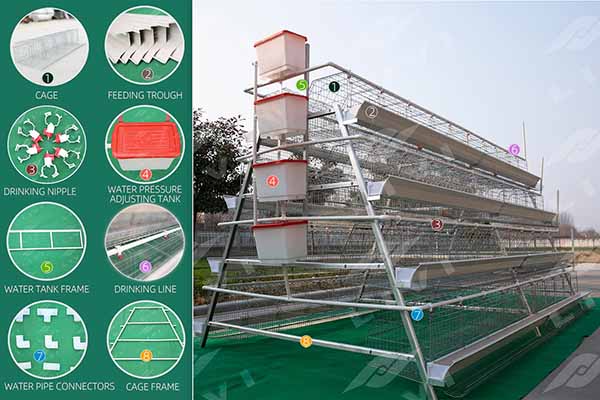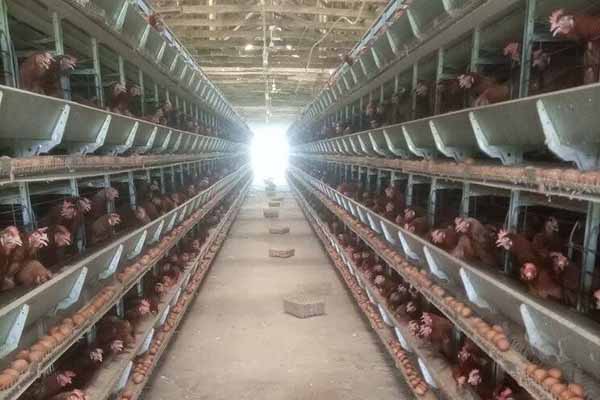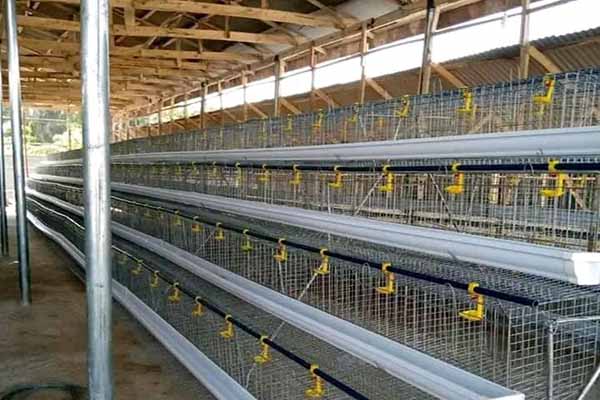How to Prevent Diseases in Poultry Farming
Managing a poultry farm efficiently requires not only good equipment and automated systems but also a robust disease prevention strategy. Preventing diseases in poultry farming is crucial for the health of the flock, the financial success of the farm, and ensuring product quality. Below are key strategies to help prevent diseases in poultry farming.

1. Implement Hygiene Protocols
Hygiene is the cornerstone of disease prevention. Regularly cleaning and disinfecting facilities, equipment, and feed can significantly reduce the risk of infections.
- Clean Water Supply: Ensure a constant supply of clean water, as disease-causing organisms can thrive in unclean conditions.
- Sanitization Schedule: Establish a schedule for cleaning and sanitizing equipment like poultry farming equipment and automated chicken cages.
- Personnel Hygiene: Enforce regular hand washing and personal protective equipment usage among staff.
2. Biosecurity Measures
Biosecurity measures are essential to keep pathogens out of the flock.

- Entry Control: Limit access to the farm by implementing strict entry and exit protocols for visitors and workers.
- Isolation Quarters: Use designated areas for new birds or sick individuals to prevent the spread of diseases.
- Purchase Biosecure Stock: Buy chickens from reputable suppliers who adhere to strict biosecurity standards.
3. Health Monitoring
Regular health checks can help identify potential issues before they become widespread.
- Disease Surveillance: Implement routine monitoring to detect early signs of disease.
- Regular Testing: Use diagnostic tests to screen birds for specific pathogens.
- Record Keeping: Maintain detailed health records to track any trends or outbreaks.
4. Vaccination Programs
Vaccination is a crucial tool in preventing infectious diseases.
- Consult a Veterinarian: Work with a veterinarian to develop a tailored vaccination schedule.
- Vaccination Protocols: Adhere to the recommended dosing schedules and intervals.
- Monitor for Side Effects: Watch for adverse reactions and report them to the veterinarian immediately.
5. Feeding and Nutrition
Nutrition plays a vital role in maintaining poultry health.
- Quality Feed: Ensure the feed is free from contaminants and meets the nutritional needs of the birds.
- Avoiding Mycotoxins: Use feed that is free from mycotoxins, which can weaken the immune system.
- Balance the Diet: Adjust the diet to provide birds with optimal levels of essential nutrients and minerals.
Preventing diseases in poultry farming is a multifaceted approach that combines good hygiene, strict biosecurity measures, regular health monitoring, eff ective vaccination, and proper nutrition. By implementing these strategies, poultry farmers can protect their flock and ensure a profitable business.
ective vaccination, and proper nutrition. By implementing these strategies, poultry farmers can protect their flock and ensure a profitable business.
For more detailed information and to discuss your specific needs, please leave a comment below or contact us for a free consultation. We at LIVI Mechanical can provide you with custom chicken farming designs and equipment quotes.




